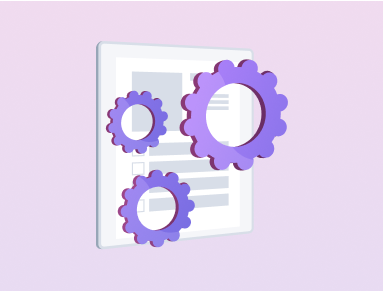Common challenges in ERP implementation and
How to overcome them

ERP (Enterprise Resource Planning) implementation is a complex process that requires careful planning, execution, and management. Despite the potential benefits, such as improved efficiency, better visibility, and increased profitability, ERP implementation can be challenging for many organizations. In this blog post, we will discuss the common challenges in ERP implementation and how to overcome them.
- Lack of Clear Goals and Objectives: One of the most common challenges in ERP implementation is the lack of clear goals and objectives. Without a clear understanding of what the organization wants to achieve, the implementation project can quickly become unfocused and ineffective. To overcome this challenge, organizations must define their goals and objectives before starting the implementation process. This will help ensure that the project is aligned with the organization's strategic vision and mission.
- Resistance to Change: Another challenge in ERP implementation is resistance to change. ERP systems require significant changes in processes, roles, and responsibilities, which can be difficult for employees to accept. To overcome this challenge, organizations must involve employees in the implementation process and provide them with the necessary training and support to adapt to the new system.
- Insufficient Resources: ERP implementation requires significant resources, including time, money, and personnel. Many organizations underestimate the resources required for successful implementation, leading to delays and cost overruns. To overcome this challenge, organizations must allocate sufficient resources for the implementation process and develop a realistic project plan that considers all aspects of the implementation process.
- Data Quality Issues: ERP systems rely on accurate and up-to-date data to function effectively. However, many organizations struggle with data quality issues, such as incomplete, inaccurate, or inconsistent data. To overcome this challenge, organizations must establish data governance policies and procedures that ensure data quality and accuracy.
- Integration Challenges: ERP systems must integrate with other systems and applications, such as CRM (Customer Relationship Management) and SCM (Supply Chain Management), to provide a complete view of the organization's operations. Integration challenges, such as compatibility issues and data mapping, can delay the implementation process. To overcome this challenge, organizations must plan for integration from the beginning of the implementation process and involve experts in the integration process.
- Customization Complexity: ERP systems can be highly customizable, but customization can also be complex and expensive. Organizations must carefully consider their customization needs and balance customization with the need for a standardized system. To overcome this challenge, organizations must develop a clear understanding of their customization needs and involve IT experts in the customization process.
- Project Management Issues: ERP implementation is a complex project that requires effective project management. Project management issues, such as scope creep and communication breakdowns, can derail the implementation process. To overcome this challenge, organizations must establish a project management framework that includes clear roles and responsibilities, communication plans, and risk management strategies.
In conclusion, ERP implementation can be challenging, but with careful planning, execution, and management, organizations can overcome these challenges and realize the potential benefits of ERP systems. By addressing these challenges, organizations can ensure a successful ERP implementation that meets their goals and objectives.


